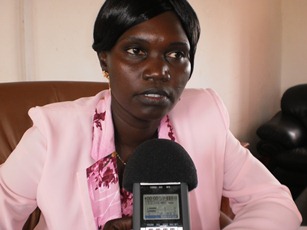Unity state seeks to tackle street children problem
August 7, 2012 (BENTIU) – Unity state Ministry of Gender and Child Welfare, in collaboration with the UN’s Children’s Fund (UNICEF), the UN Mission in South Sudan (UNMISS) and the South Sudan Disarmament, Demobilization and Reintegration Commission (SSDDRC), on Tuesday unveiled a plan to assist 83 street children in the state capital, Benitu, and surrounding county, Rubkotna.

Latjor told Sudan Tribune on Tuesday that 93 children were found on streets, 83 of which were living there. According to the Ministry’s survey, conducted in July, ten of them fled their family homes due to a lack of basic provisions.
She explained that a proposal had been submitted to non-governmental organisations (NGO) and the state government to build two children’s centres providing accommodation and schooling facilities for the destitute children.
Many of the street children previously became child soldiers in the South Sudan army (SPLA) but this has been brought under control by the SSDDRC which demobilised many of them through the SPLA Child Protection Unit.
The recently independent South Sudan lost many of children’s mothers and fathers to decades of civil war. With insufficient social care systems in place some children without the requisite familial structures in place have to resort to a life on the street.
Michael Ker, director of child protection in the ministry said the survey found that too many children are on streets in Unity state, living in poor conditions. He described them as behaving like wild animals, fleeing when they see people who often suspect them of criminal acts such as theft in the markets. “They look at people as their enemies, they don’t look people as people who can save them,” said Ker.
(ST)
